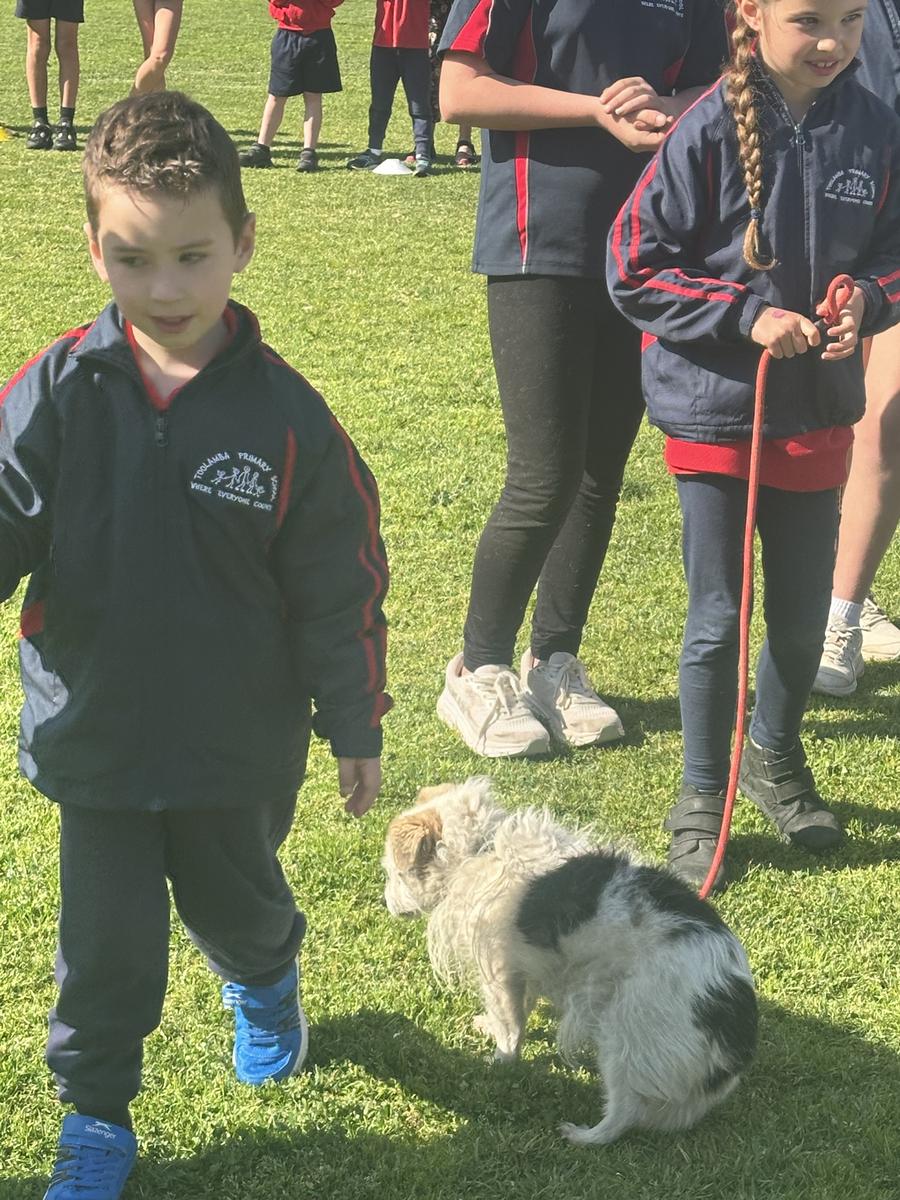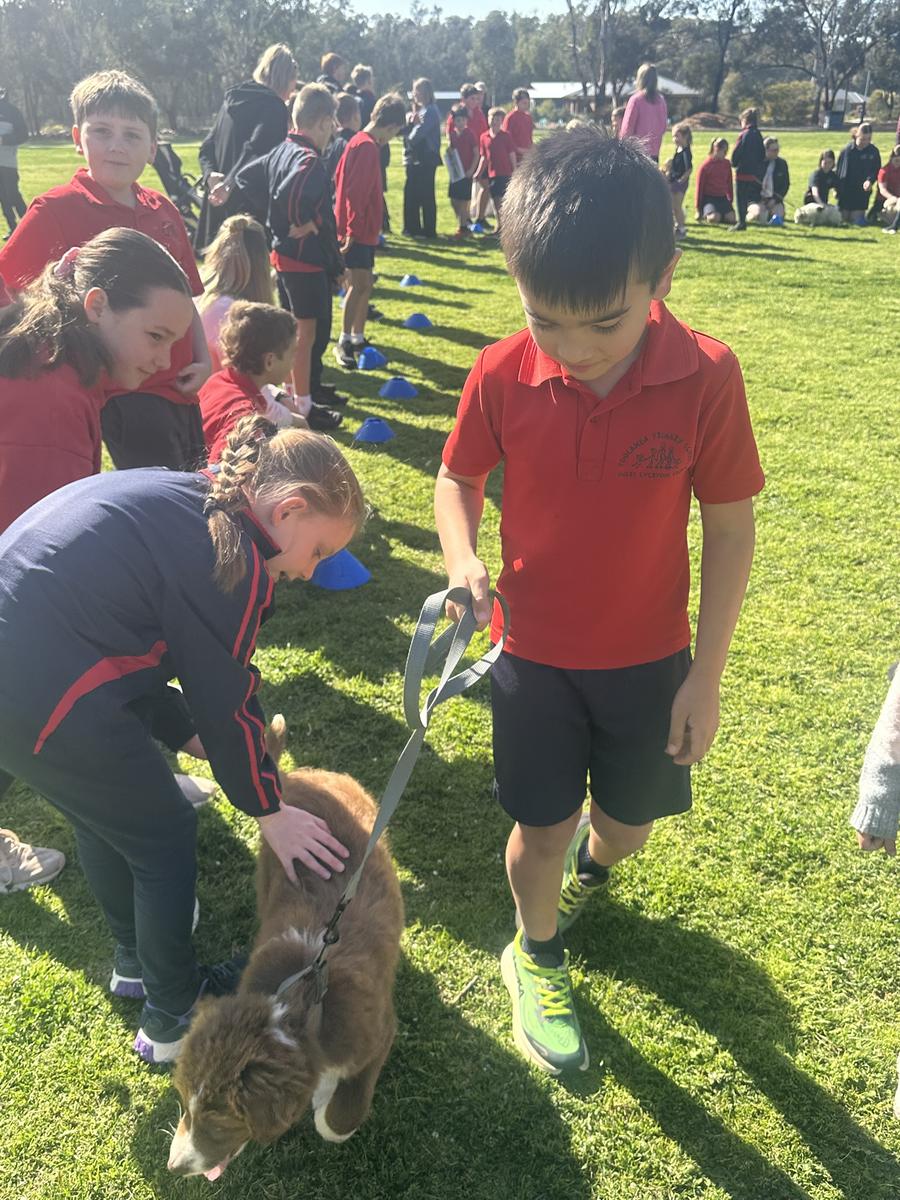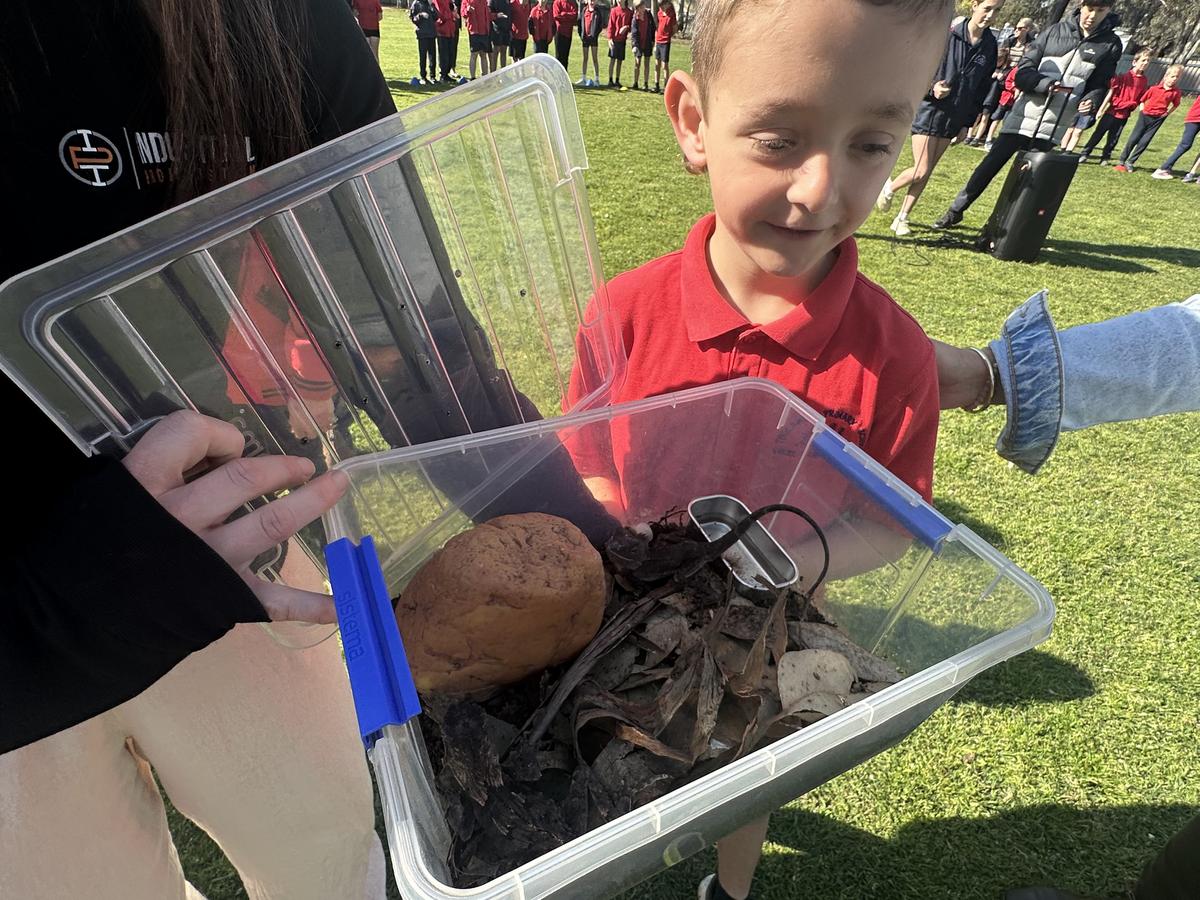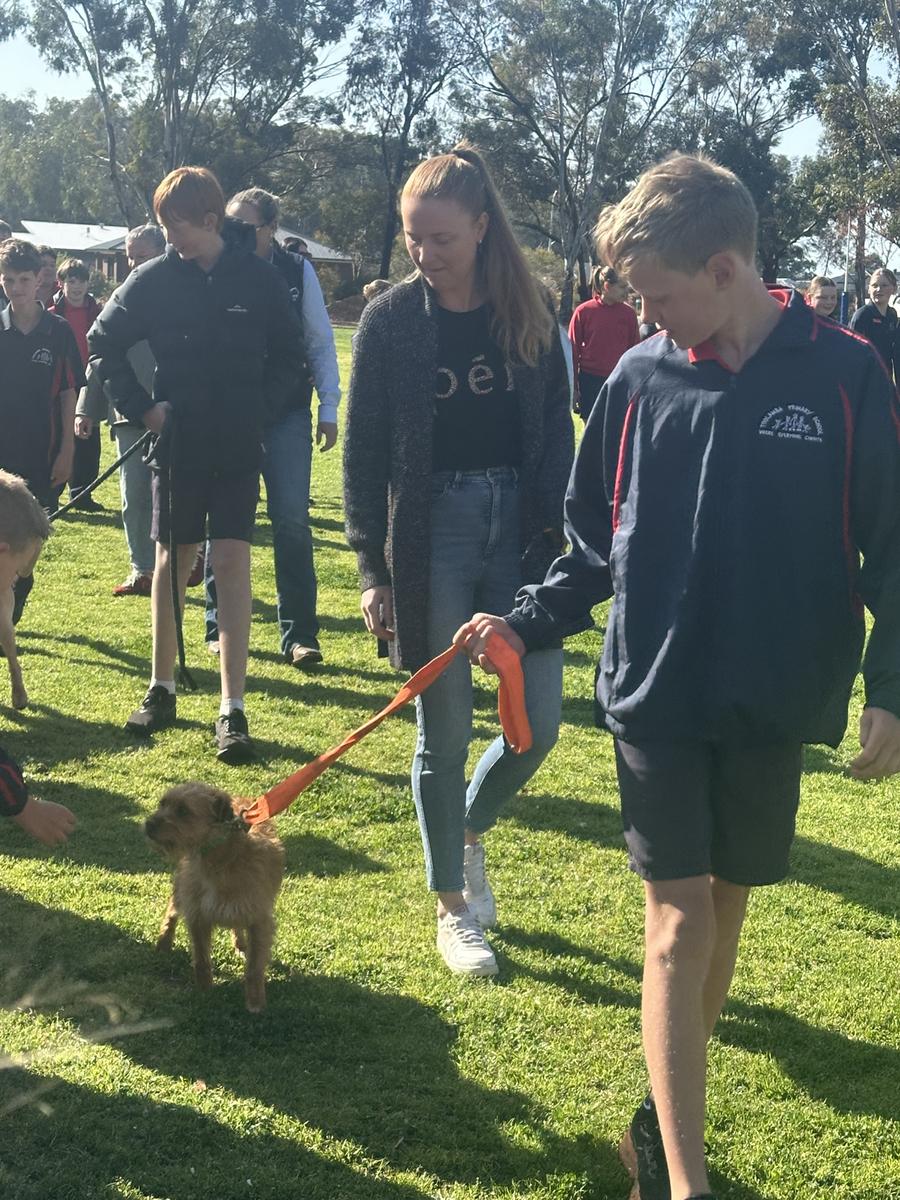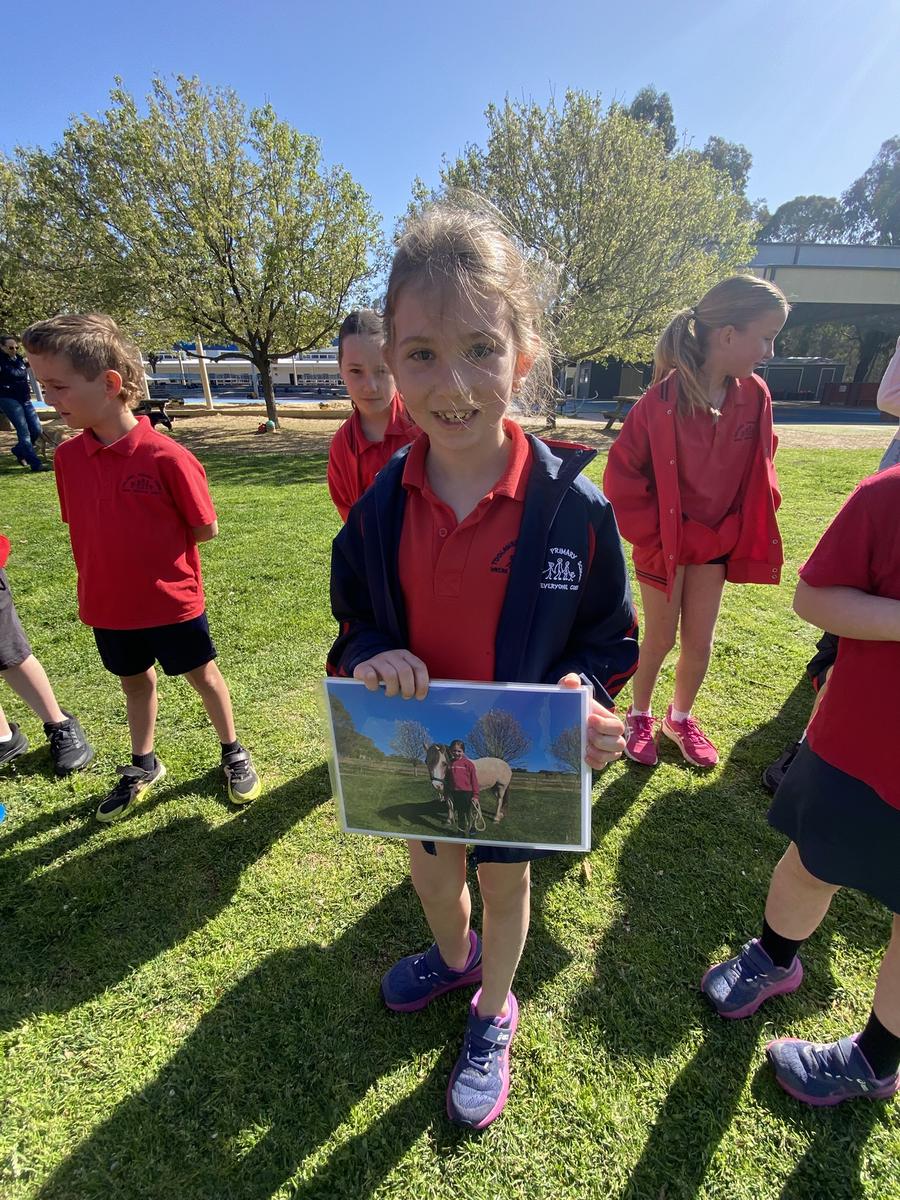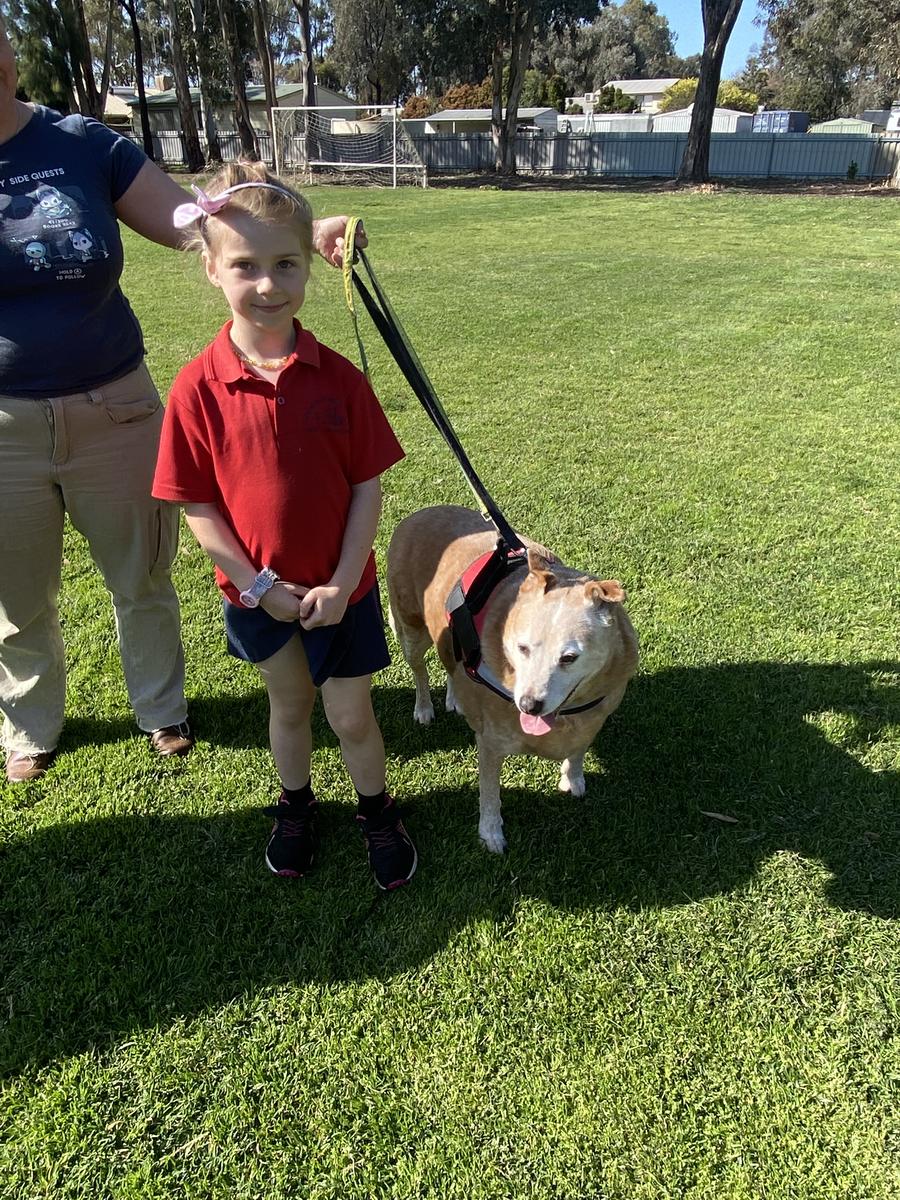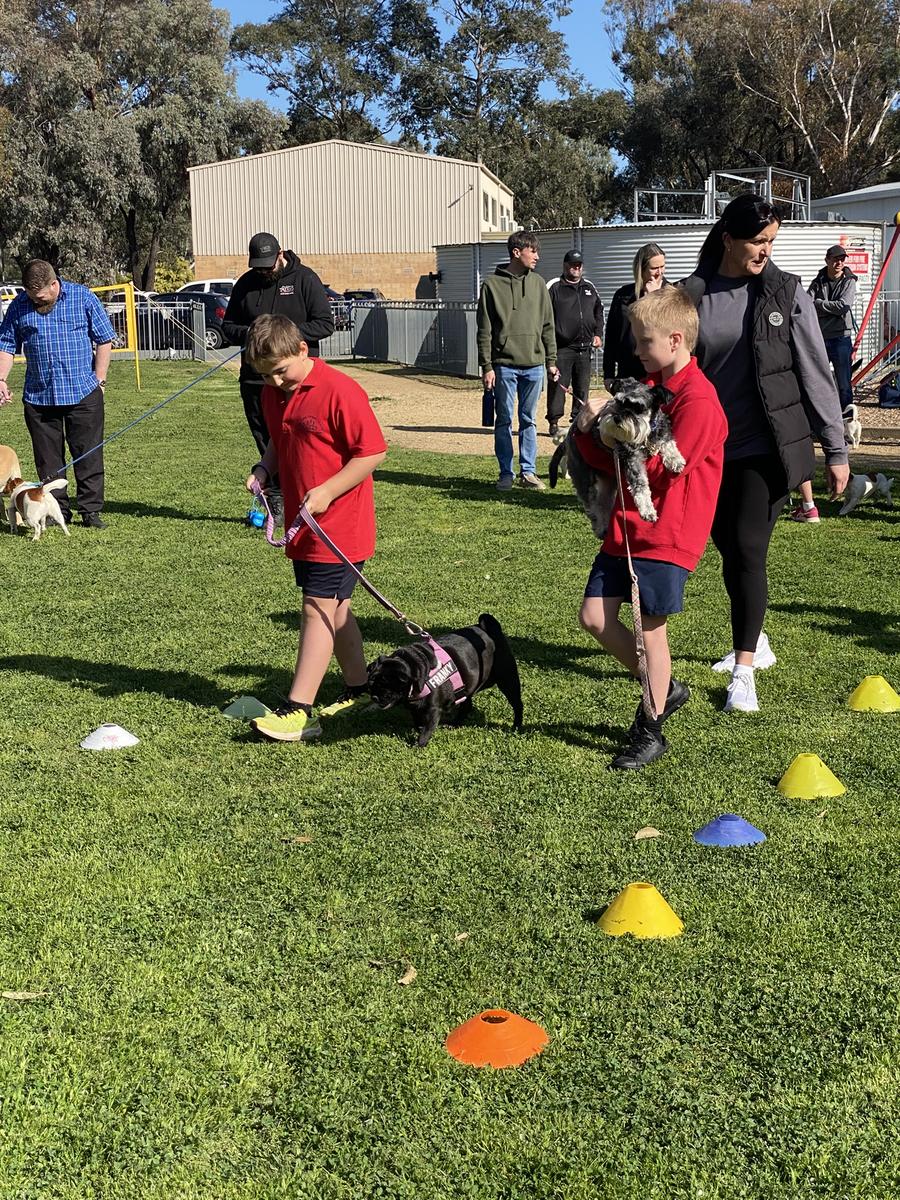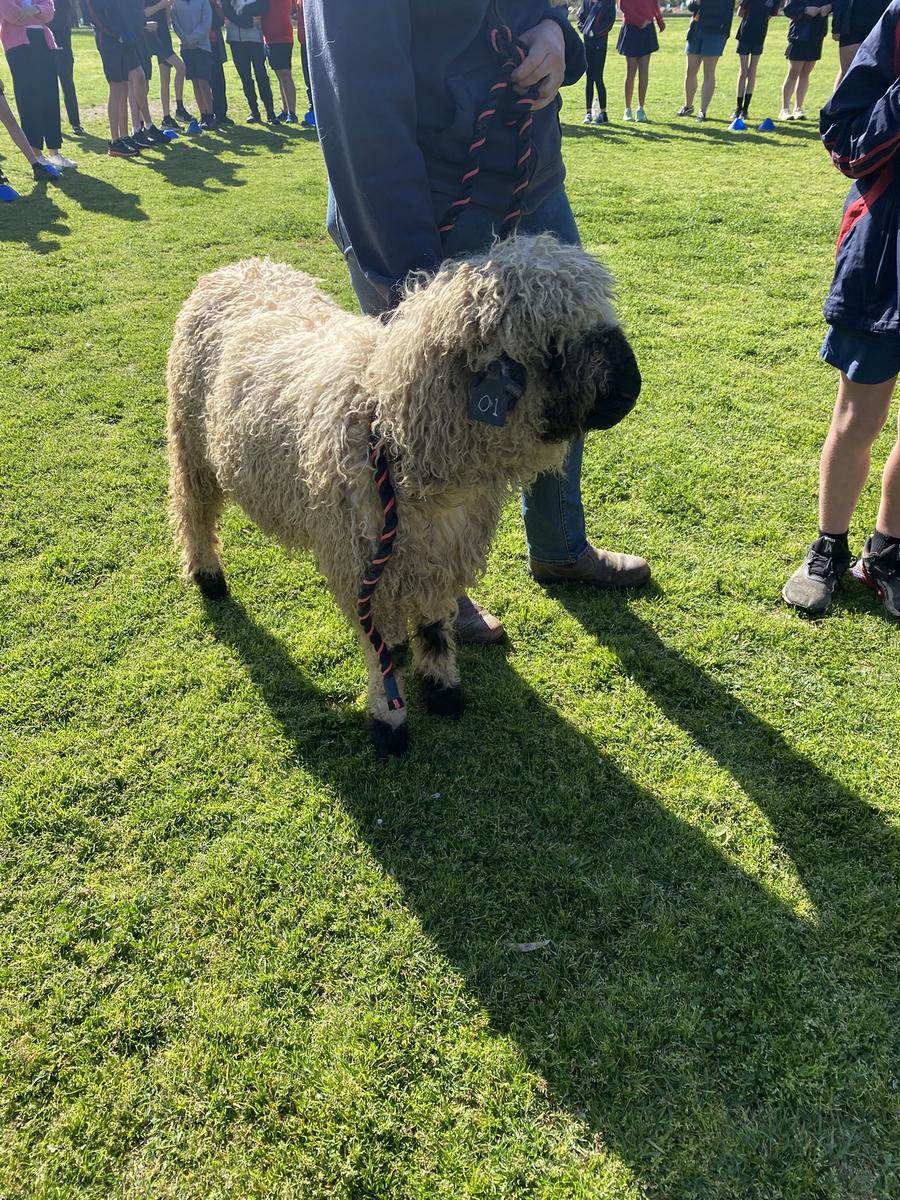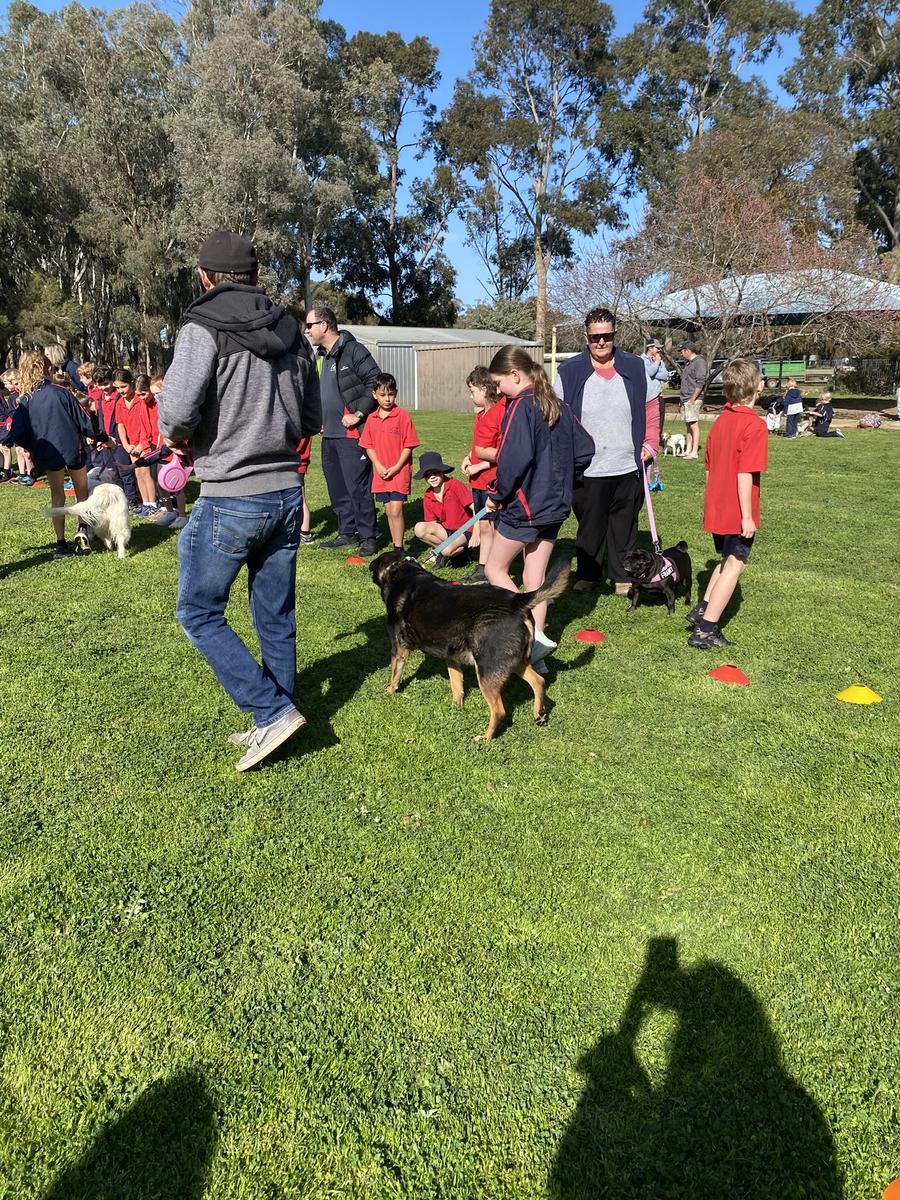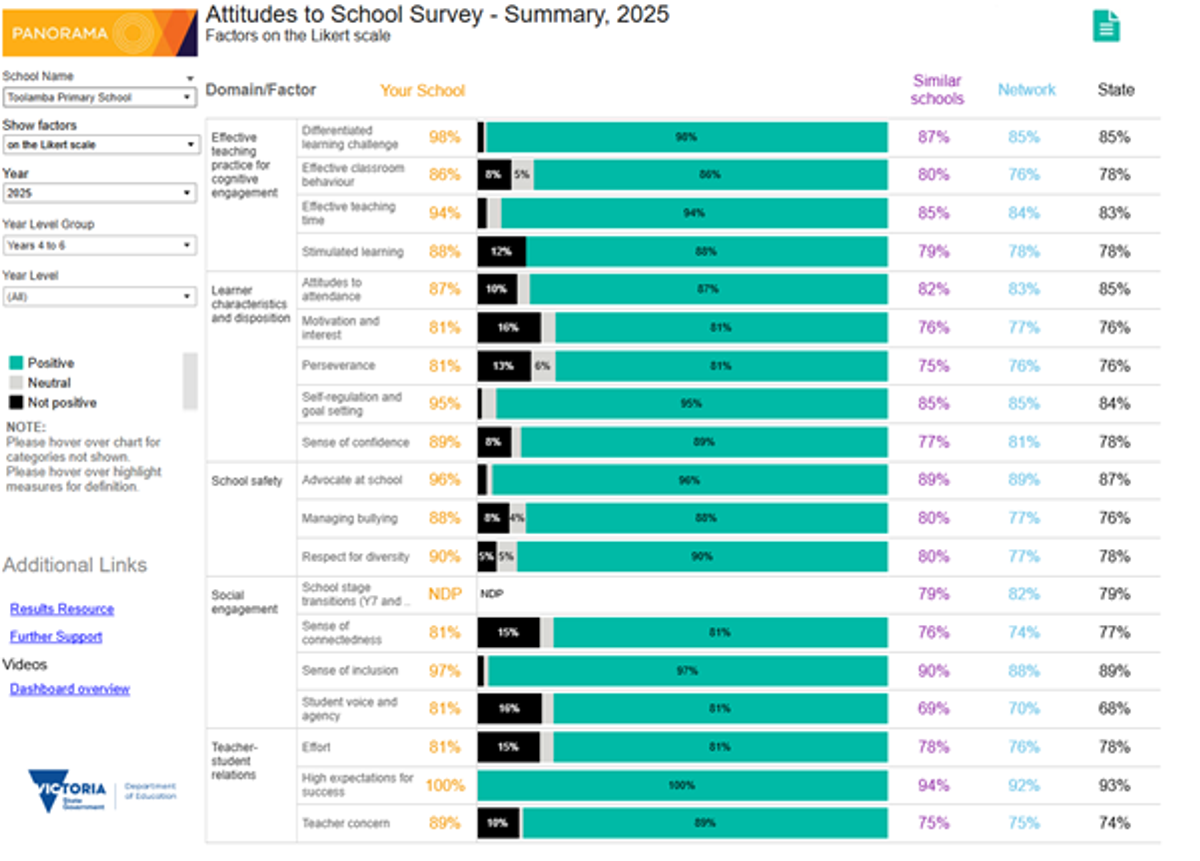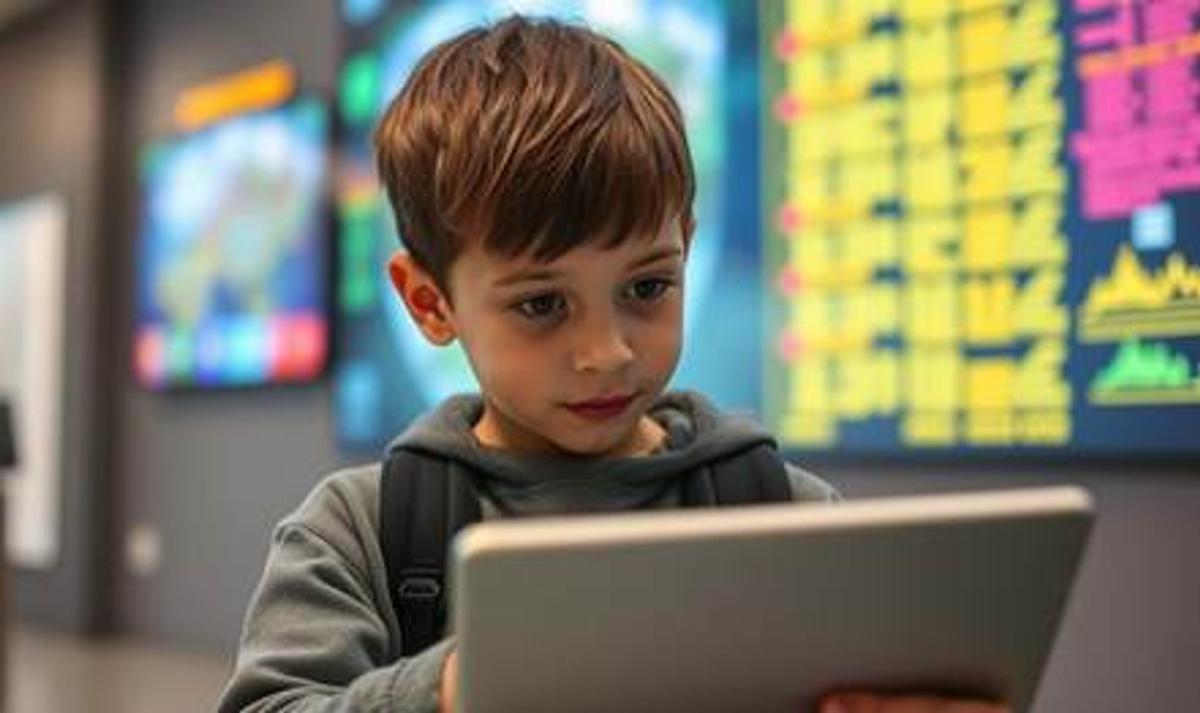Principal's Report

Dear families,
What a great week we have had to end the term thanks to our school leadership teams. Despite the wet day the AFL clinic was enjoyed by all. Hot pies and sausage rolls were certainly a hit for lunch and the cut-up oranges at recess delivered by JSC members were certainly appreciated. Congratulations to our Sports Leadership Team who organised a variety of multiage activities in the afternoon.
Congratulations to Indie Giles who is part of the Communication Team. Indie attended school council and gave an update on the Leadership Teams. Her report was certainly enjoyed by all members of school council.
CONGRATULATION PICASSO ART COMPETITION WINNER
Congratulations to Luke Rooney who won the Shepparton South Rotary Club’s Young Picasso Art Competition. This was a great achievemnt.
PET PARADE
Thanks to our Student Engagement Team, we were able to enjoy a fantastic Pet Parade! Students proudly brought along their much-loved pets—ranging from playful dogs, a goat, a ducks, a sheep, hermit crab and even a lizard. The parade was filled with many smiles, laughter, excitement, and plenty of wagging tails. A big thank you to everyone who participated and helped make the event such a fun. I'm sure we will all have fond memories of the day. Thankfully all the animals were very well behaved!
HEALTH UPDATE
Currently we have cases of COVID and Influenza. If you child is unwell it might be worth testing them.
ATTITUDES TO SCHOOL SURVEY
Earlier in the year our Grade 4–6 students took part in the annual Attitudes to School Survey. The survey gives students a voice in their learning by asking about their experiences at school, including wellbeing, engagement, and connection. The feedback helps us celebrate what’s working well and identify areas where we can continue to grow and improve together.
BEYOND SCREEN TIME: HOW TO COACH KIDS TO BECOME SAVVY & SAFE DIGITAL CITIZENS
SEVEN DIGITAL DISCIPLINE TOOLS EVERY PARENT NEEDS IN 2025.
Sep 17, 2025
This newsletter is the second in a special series of newsletters focusing on helping kids develop healthy digital habits. It’s available to all Paid subscribers and our School Members to share with their school communities.
The digital world is a new frontier for all of us, and it can feel like a daunting place to navigate as a parent.
The rules we grew up with—"be home before dark," "don't talk to strangers"—don't quite fit when the wild west is accessible from a device in our own homes.
It’s easy to feel the pull to simply control or restrict everything. To lock down devices, impose strict time limits, and police every click.
But true digital discipline isn't about control—it's about teaching.
It’s about coaching our kids to be smart, responsible, and resilient digital citizens. Just as we teach children to cross the road safely, we must also teach them to navigate the online world wisely.
Here are seven essential tools to have in your digital parenting toolbox to guide, not control, your children under 12. Each tool is linked to a research-backed discipline approach that parents should draw on. There’s an explanation at the end of the session.
1. Model the Behaviour You Want to See
(Linked to the Social Learning and Prevention approaches)
This is the most powerful tool of all.
Children are great imitators, and they're watching your every move.
If you're constantly scrolling at the dinner table or on your phone while they're talking to you, guess what they'll do?
Your habits become their habits.
Social learning theory shows that kids copy what we do, not necessarily what we say.
- Example: When it's family mealtime, put your phone in a basket out of sight.
- Expert Tip: Announce what you're doing. "I'm putting my phone away now so we can all chat and be together." This shows them that you value your time together more than your device.
2. Establish a Tech-Free Zone
(Linked to the Prevention approach)
Just as we have rules for where we can and can't run inside the house, it's wise to have clear rules for where devices are used.
A designated tech-free zone, like the dining table or bedrooms at bedtime, reduces friction and sets a clear boundary.
Research suggests that consistent routines and rules can help reduce conflict and promote cooperation.
- Example: “In our family, we keep all screens out of the bedroom at night. The bedroom is for sleep and relaxation.”
- Expert Tip: Make it visual. Use a simple chart or a 'phone parking' station to remind everyone of the rule.
3. Use the When/Then Strategy
(Linked to the Positive Discipline approach)
This straightforward sequencing tool maintains transparency and fairness without coming across as a threat or a bribe.
It helps kids understand that responsibilities come before privileges.
- Example: “When you’ve finished your homework, then you can have 30 minutes of screen time.”
- Expert Tip: Be consistent and state it calmly like a fact. Kids will learn that getting their work done is the key to unlocking their fun time.
4. Co-View and Co-Play
(Linked to the Emotion Coaching and Connection approaches)
Don't just hand them the device and walk away. Sit with your child and engage with what they’re watching or playing.
This is your opportunity to teach and connect.
By being there, you can point out positive and negative behaviours, ask questions, and share your own values.
It also helps you understand what they're doing and who they might be interacting with.
- Example: "What’s that game about? Can you show me how to play?"
- Expert Tip: Use this time to open up conversations. "What would you do if a stranger messaged you in this game?" This builds their critical thinking skills in a safe environment.
5. Teach Them to Be a Good Digital Citizen
(Linked to the Other-Oriented approach)
The internet is a community, and kids need to learn how to be respectful members of that community.
This includes being kind, thinking before they post, and understanding the impact of their words.
These are the same lessons we teach them on the playground, just applied to a new context.
- Example: “I feel worried when you talk about other people in a mean way online because those words can really hurt them.” (This is an 'I' statement).
- Expert Tip: Use real-life situations as teaching moments. If they see a mean comment online, ask, “How do you think that person feels after reading that?” This helps build empathy.
6. Repair and Reflect After a Mistake
(Linked to the Emotion Coaching approach)
Mistakes are going to happen. Your child will click on something they shouldn't, or say something they regret.
When they do, what matters is how you handle it.
It's not a show of weakness to admit you made a mistake; it’s a sign of a strong, empathetic person.
- Example: "It's a mistake we all make. Let's talk about what happened and how you can do it differently next time.”
- Expert Tip: Turn conflict into an opportunity for learning. Ask, “What did you learn from that, and what can we both do differently next time?”
7. Natural Consequences Are Great Teachers
(Linked to the Positive Discipline approach)
Children learn best from the real-world consequences of their actions. Provided they are safe and age-appropriate, these moments can be more powerful teachers than any lecture.
- Example: If they break a family rule about screen time, they lose the device for a set period. That's a direct, logical consequence.
- Expert Tip: Resist the urge to shield them from every discomfort. Let the consequences do the heavy lifting. If they lose their progress in a game because they didn't follow a rule, that soggy memory will do more teaching than any lecture.
Finally:
Digital discipline doesn’t need to be harsh to be effective.
The most powerful guidance is quiet, calm, and connected.
It’s about raising kids who are emotionally intelligent and self-aware, not just obedient.
You don’t need to be perfect, just present. And every small, consistent effort makes a difference.
END TERM ASSEMBLY
Our end of term assembly will commence at 1.15pm tomorrow in the amphitheatre weather permitting.
Wishing everyone a safe and enjoyable break and we will look forward to seeing everyone back and well rested for Term 4.
Regards Filippa & Heather
